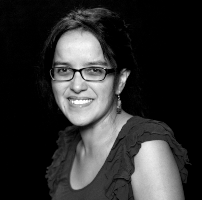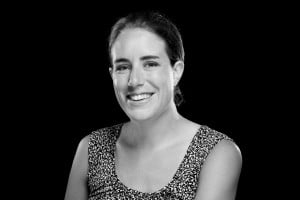Today’s post is by Melinda Guerra, the Administrative Assistant here at The Marin Foundation.
“We have been too wrapped up in planning the communication of our truth by cooking up contingency plans for potential rebuttals that we have forgotten to think relationally. Looking for opportunities to build trust will inevitably remove some of the fears and obvious obstacles we face. ”
— Love Is an Orientation, pp 44-45
—
I grew up in a church that focused heavily on evangelism. In junior high, the youth group attended weekend training sessions that taught us how to approach strangers at the local carnival, smile, pass out tracts, and ask “if you were to die tonight, would you go to heaven?” Somewhat less intentionally, the sessions also taught us how to deal with offended stares, muttered responses, and assorted displays of rejection… my favored manner of coping was to ditch the rest of my tracts on a picnic table, buy cotton candy, and vow to never again speak to a stranger.
In high school, the same group that put on those sessions created a week-long series of workshops, worship, and witnessing. The first year, we were sent downtown Chicago with surveys which, in 4 questions, took us from “What do you think is the largest problem facing society today” to “Can I share my testimony with you,” and again my sensitive heart learned to cope with rejection by strangers. The next years though, were ones my sixteen year-old self enjoyed, because they gave us tools to have what felt like actual conversations with people. In these workshops, we were told that people tend to have one of three barriers to accepting salvation, and that while each of those had a few variations, if we could learn the responses for each, we could move the person past their barrier and into the kingdom.
I learned the barriers and the responses dutifully, and I had some interesting conversations with the people who stopped to talk with us; also, I learned to recognize the way people disengage from a conversation when they can tell they aren’t really being heard or taken seriously.
By the time I got to Bible College, I’d realized I could still love God without asking strangers about eternity, and I began the long road of re-learning what it meant to engage in conversations –about faith and about life– without just trying to prove the other person wrong (oftentimes before they’d spoken more than a sentence). In a community where many others had similarly been taught they had all the answers, those of us who were chaffing now from that way of interaction worked together to deconstruct and rebuild the pieces of what it really meant to love people, even people who disagreed with us. Our mentors and leaders had meant well, but while they’d meant to teach us to be bold, what we’d too-often learned was to be bulldozers, and we and our friends suffered for it.
Time and time again, I’ve found myself learning (and re-learning) the lesson Andrew gives us in the above quote: in “cooking up contingency plans for potential rebuttals,” we’ve lost what it is to think relationally. It’s been a sad loss. Listening — really listening — is a task/skill/lifestyle that requires intentionality; like most things that take effort, the learning comes in pieces, sometimes after we’ve hurt people, sometimes after we’ve been hurt, sometimes in the sinking awareness that the friend across the table has been smiling and nodding and not yet said a word in over twenty minutes. There’s a vulnerability in learning to listen, a loss of control over the conversation, a humble admittance that we can learn from the other person, a willingness to realize that — in a culture that so values answers and being right — sometimes the best way to love well is to silence our own arguments and be still and really listen.











